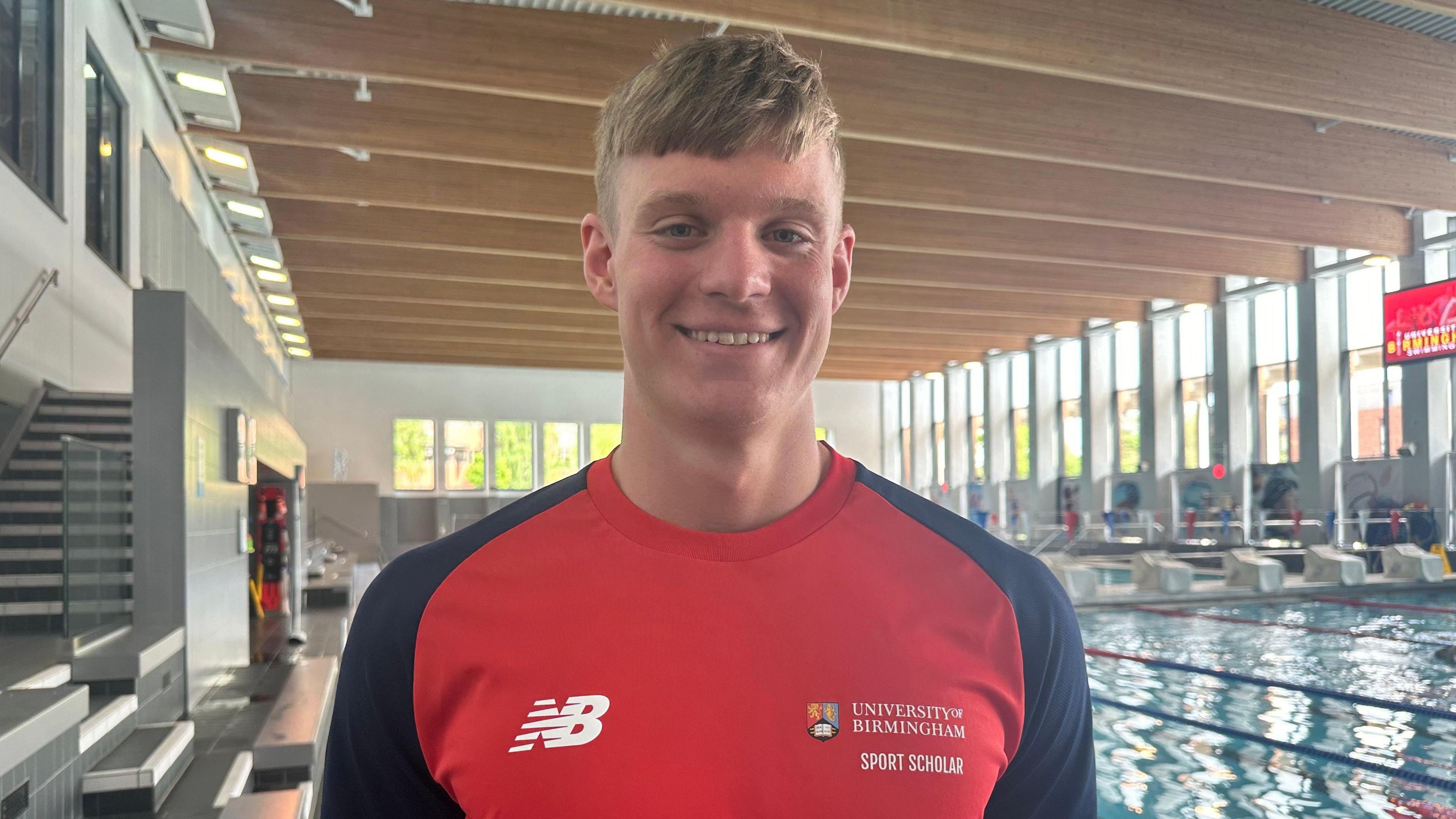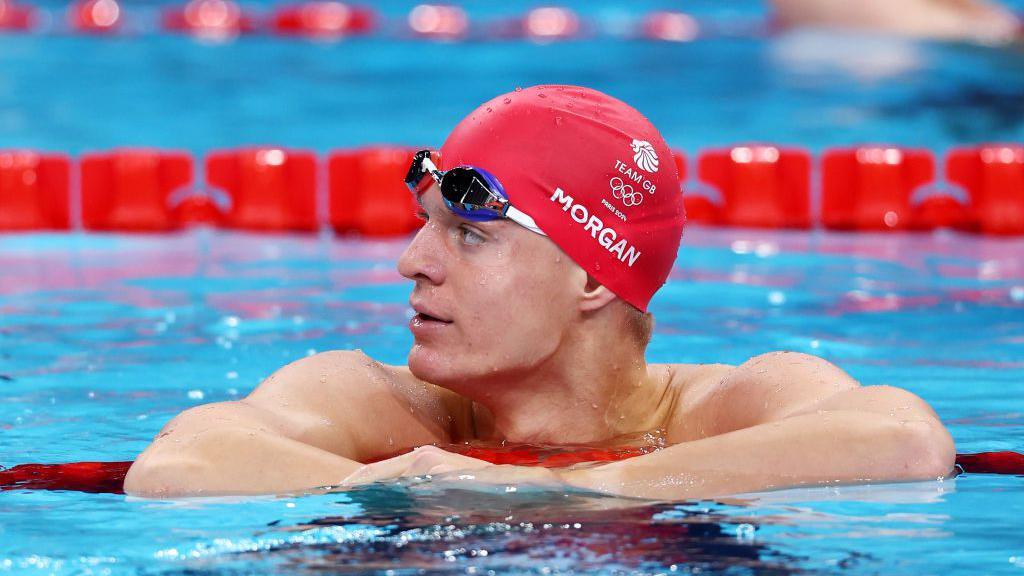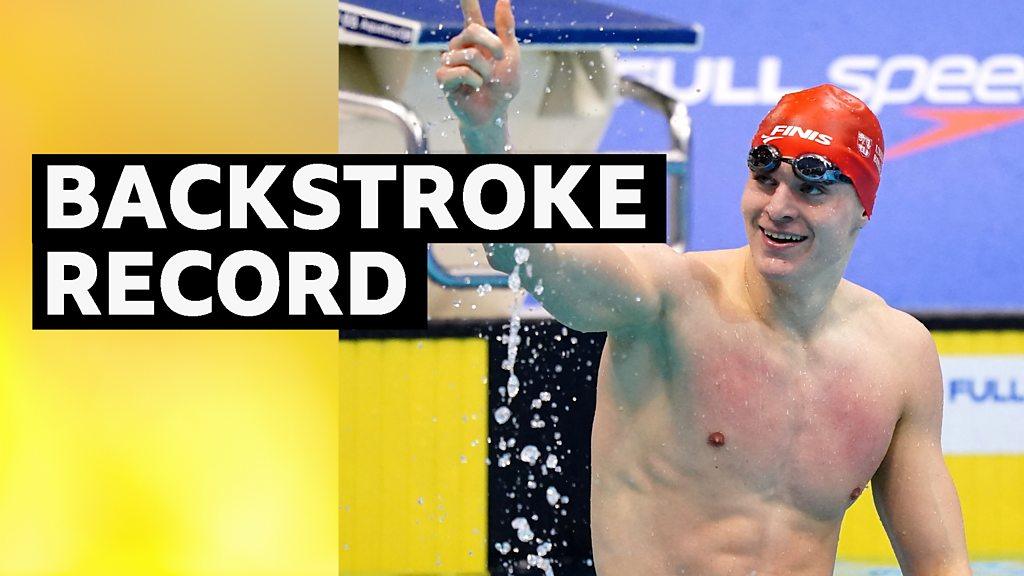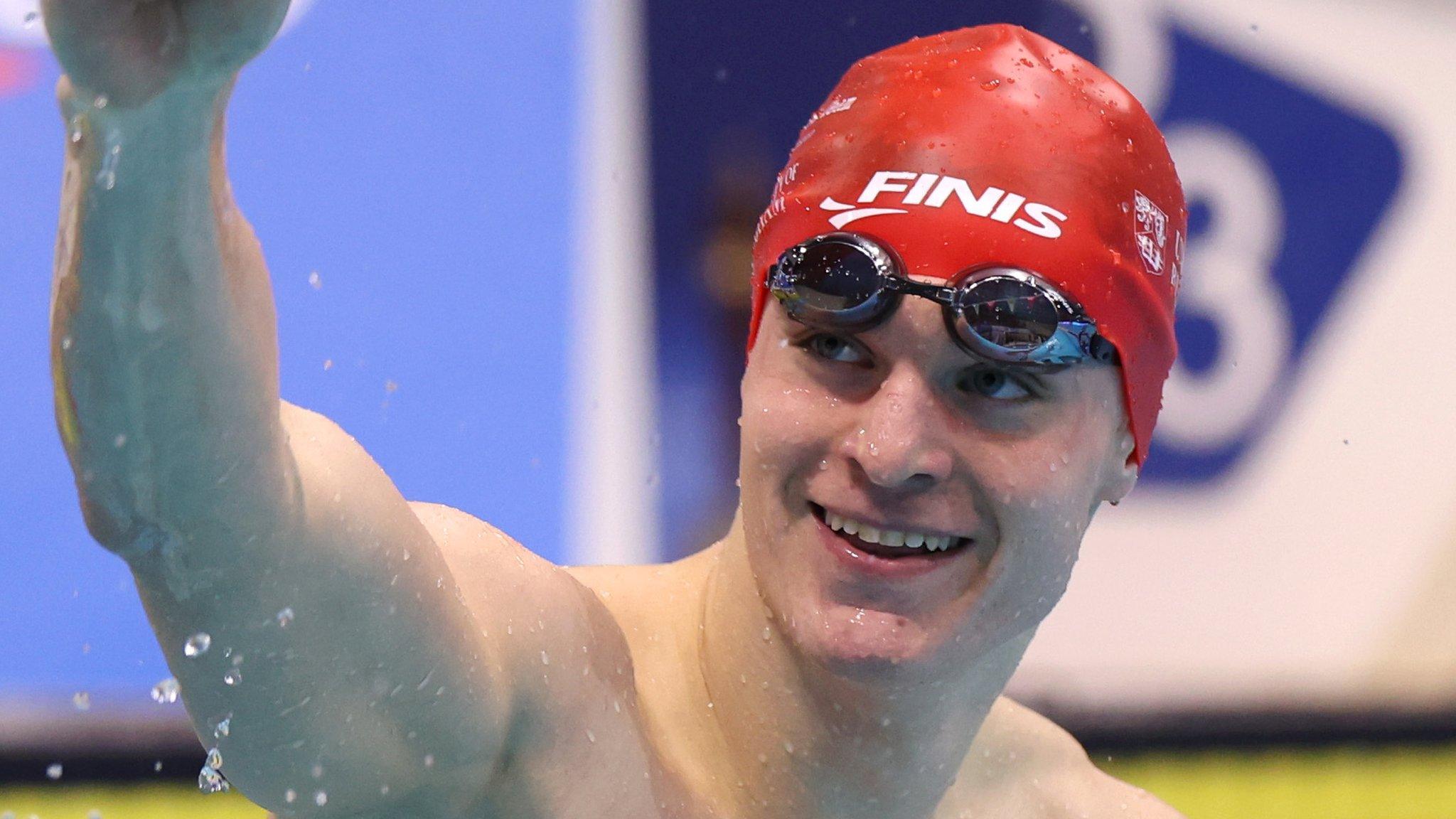The gruelling training of an Olympic swimmer

Oliver Morgan broke the British men's 100m backstroke record to qualify for Paris 2024
- Published
At just 21 years old, Oliver Morgan has already made a name for himself on the Olympic stage.
He competed with Team GB at Paris 2024 in the men's 4x100m medley relay and 100m backstroke final, and broke the British men's 100m backstroke record to qualify for the Games.
Morgan grew up in the small town of Bishop's Castle, Shropshire, and alongside his swimming career, is in his final year of study at the University of Birmingham.
But have you ever wondered how an athlete of his calibre lives, eats, and trains?
What is training like?
Typically, Morgan trains for about two hours a day, swimming anywhere from five to six kilometres in that time.
He begins with a warm-up before doing a prep set, which, as it sounds, prepares him for his main set.
His main set consists of tasks such as threshold training - keeping his heart rate at 170 or 180bpm for "45 minutes or so".
"It’s pretty gruelling, but I love pushing myself and it's good fun," he said.
"It’s a lot of base work, working your aerobic base and things like that.
"It’s pretty tough - you're training hours a day and you're getting in the pool to race for 50 seconds."
But, he said, that was just part of the sport.
"It’s a non impact sport, so you don’t have those risks of your knees or your hips or things like that."
What does an Olympic swimmer eat?
According to Morgan - "a lot". Four to 5,000 calories on a normal day.
"A lot of pasta, lot of rice, chicken, salmon...whatever you can get in your body, basically, that's good for you," he said.
But, apparently, indulging in a cake or a doughnut is not the end of the world.
"Sometimes those unnecessary meals or cheat meals are helpful," he told the BBC.
He added that he had to be careful not to eat too close to training.
"You learn what foods to eat before, and what works for you…it’s different for everyone."
What happens on competition day?
Morgan has travelled across the globe for competitions - most recently, Paris and Japan.
"Most of the time, we have heats in the morning and then either semi-finals or finals in the evening," he said.
The first thing he does after waking early is having some food, before a jam-packed schedule.
From then, his day involves a "stretch, warm-up, race, warm-down, massage" then having a nap and some food... "and then it's the same again".
"It's quite a long day sometimes," he said.
"You think 'I've got six hours between my heat and final', but it just flies by - it's quite gruelling sometimes."
Get in touch
Tell us which stories we should cover in Shropshire
Follow BBC Shropshire on BBC Sounds, Facebook, external, X, external and Instagram, external.
Related topics
- Published6 August 2024

- Published5 April 2024

- Attribution
- Published4 April 2024

- Attribution
- Published3 April 2024
